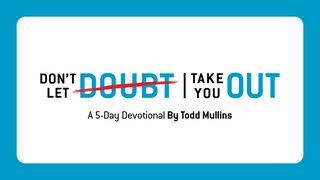Verses: Psalm 139Sample

Psalm 139:23-24
Our last day in Psalm 139! Way to hang in there and keep pressing on through this psalm. A beautiful prayer that welcomes intimacy and examination before God comes from the intensity of the previous three verses.
“Search me, O God, and know my heart! Try me and know my thoughts! And see if there be any grievous way in me, and lead me in the way everlasting!”
The way this psalm started is how it ends, but with a twist. The psalmist takes his first statement about God from verse 1 (“O Lord, you have searched me and known me”) but now prays it back to God: “Search me, O God, and know my heart!” The psalmist had parted ways with the wicked just before this in verses 19-22 (the imprecatory part of the psalm), but he is not content with merely parting ways. He is aware that the wickedness present in the wicked is also within himself. He wants God to search him, know him, convict him of any straying wicked way, and then re-direct him in God’s path of life and holiness. In this prayer, the psalmist embodies two disciplines we hope to embody: meditation and repentance.
Meditation
Christian meditation is a discipline that has been long lost by many in the Western world. We like quick activities we can check off a to-do list, but meditation is unrushed and unhurried. It’s a prayerful lingering in the text of Scripture, allowing God to speak to us while we also speak to God. Richard Foster distinguished between Christian and Eastern meditation,
“Eastern meditation is an attempt to empty the mind; Christian meditation is an attempt to fill the mind… Detachment is not enough; we must go on to attachment.”
Donald Whitney further explained,
“For some, meditation is an attempt to achieve complete mental passivity, but biblical meditation requires constructive mental activity. Worldly meditation employs visualization techniques intended to ‘create your own reality.’ And while Christian history has always had a place for the sanctified use of our God-given imagination in meditation, imagination is our servant to help us meditate on things that are true (see Philippians 4: 8). Furthermore, instead of ‘creating our own reality’ through visualization, we link meditation with a prayer to God and responsible, Spirit-filled human action to effect changes.”
Though the psalmist knew God had already searched him (see verse 1), part of his meditation and application of this truth was to ask God to do it again. He knew God was the Great Searcher of hearts and souls but turned that truth into a personal prayer and request. David’s saying, “God, you’ve excavated my heart before; would you do it again?” Meditation takes the truths of Scripture and transforms them into prayers. As we pray for those truths, we are, in turn, led back to Scripture! Meditation is a beautiful bridge between Scripture and prayer.
Repentance
Not only was the psalmist meditating, but he was also prayerfully responding to God’s leading and guidance in his life. This process is called “repentance” in the Bible. It’s marked by a relationship with God, not just ritualistic confession, but also a genuine turning back to God (the way everlasting). The psalmist knows that if the way everlasting is in God and His ways, any other way is the way to damnation, for it leads away from God; any other way is a “grievous way.” This process shouldn’t be foreign to the Christian but rather normative. It’s precisely what marks a Christian as a Christian! A Christian is someone who realizes not only their sin but also their need for a Savior. This need isn’t just found at the beginning of the relationship; rather, it keeps the relationship going. Martin Luther himself said, “Our Lord and Master Jesus Christ… willed the entire life of believers to be one of repentance.” Growth as a Christian is not marked by less repentance but more repentance because we’re more aware of sin! This sounds a little depressing upon initial glance, but true repentance should be marked by both conviction of sin and a greater trust in and joy in the work of Jesus. Tim Keller said it well,
“We can say that we are more wicked than we ever dared believe, but more loved and accepted in Christ than we ever dared hope — at the very same time. This creates a radical new dynamic for personal growth. It means that the more you see your own flaws and sins, the more precious, electrifying, and amazing God’s grace appears to you. But on the other hand, the more aware you are of God’s grace and acceptance in Christ, the more able you are to drop your denials and self-defenses and admit the true dimensions and character of your sin.”
Charles Spurgeon’s expanded prayer flows out of these two verses:
”See whether there be in my heart, or in my life, any evil habit unknown to myself. If there be such an evil way, take me from it, take it from me. No matter how dear the wrong may have become, nor how deeply prejudiced I may have been in its favour, be pleased to deliver me therefrom altogether, effectually, and at once, that I may tolerate nothing which is contrary to thy mind. As I hate the wicked in their way, so would I hate every wicked way in myself. And lead me in the way everlasting. If thou hast introduced me already to the good old way, be pleased to keep me in it, and conduct me further and further along it. It is a way which thou hast set up of old, it is based upon everlasting principles, and it is the way in which immortal spirits will gladly run for ever and ever. There will be no end to it world without end. It lasts for ever, and they who are in it last for ever. Conduct me into it, O Lord, and conduct me throughout the whole length of it. By thy providence, by thy word, by thy grace, and by thy Spirit, lead me evermore…”
May these two verses be a daily rhythm we often pray in our relationship with God!
Memorize & Meditate
- Pray David’s words from Psalm 119 to God: “Open my eyes to see wonderful things in your law.” Ask God to reveal Himself to you in His Word, that you might know Him more. To truly know Him!
- Read Psalm 139:23-24. What stands out? What’s encouraging? What’s confusing?
- In your journal, write out verses 23-24. The intention here is to slow down a little with the passage and linger.
- Listen to Psalm 139:23-24 by Page CXVI.
- We were created for communion with God. Part of that communion works itself out in these rhythms of God ongoingly searching us and revealing ways we’re wandering from Him (in both small and large ways). This is a beautiful and healthy aspect of our relationship with God. How can you find more intentional rhythms of asking God to search your heart and actions? Consider taking time during your day or in the evening to review your day and ask God to reveal both His nearness and how we wandered. Take the next couple of minutes to pray these verses to God right now!
Credits
Song by Page CXVI.
Devotional by Joel Limpic.
Scripture
About this Plan

Memorize and meditate on Psalm 139 for 10 days through songs and daily devotions. Plan includes 10 songs written straight from Psalm 139 by artists like Robbie Seay, Rivers & Robots, Charlie Hall, Aaron Strumpel and others! Each song is accompanied by a daily devotion to help you meditate on the content and themes of the Psalm.
More
Related plans
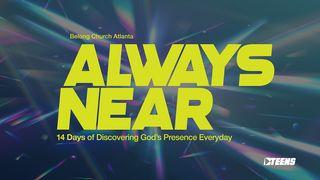
Always Near: 14 Days of Discovering God’s Presence Every Day
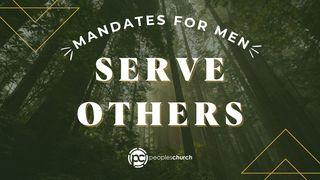
Mandates for Men: Serve Others
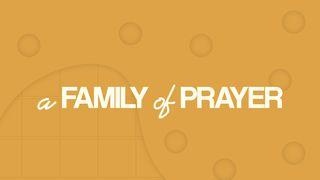
A Family of Prayer

Sound of Heaven: A 6-Day Devotional by Danny Gokey

Every Place

The Year of God's Divine Agenda

There Is No Law Against These Things

In Her Image: Character Study of the Proverbs 31 Woman
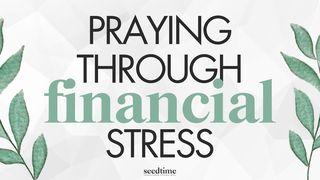
Praying Through Financial Stress
